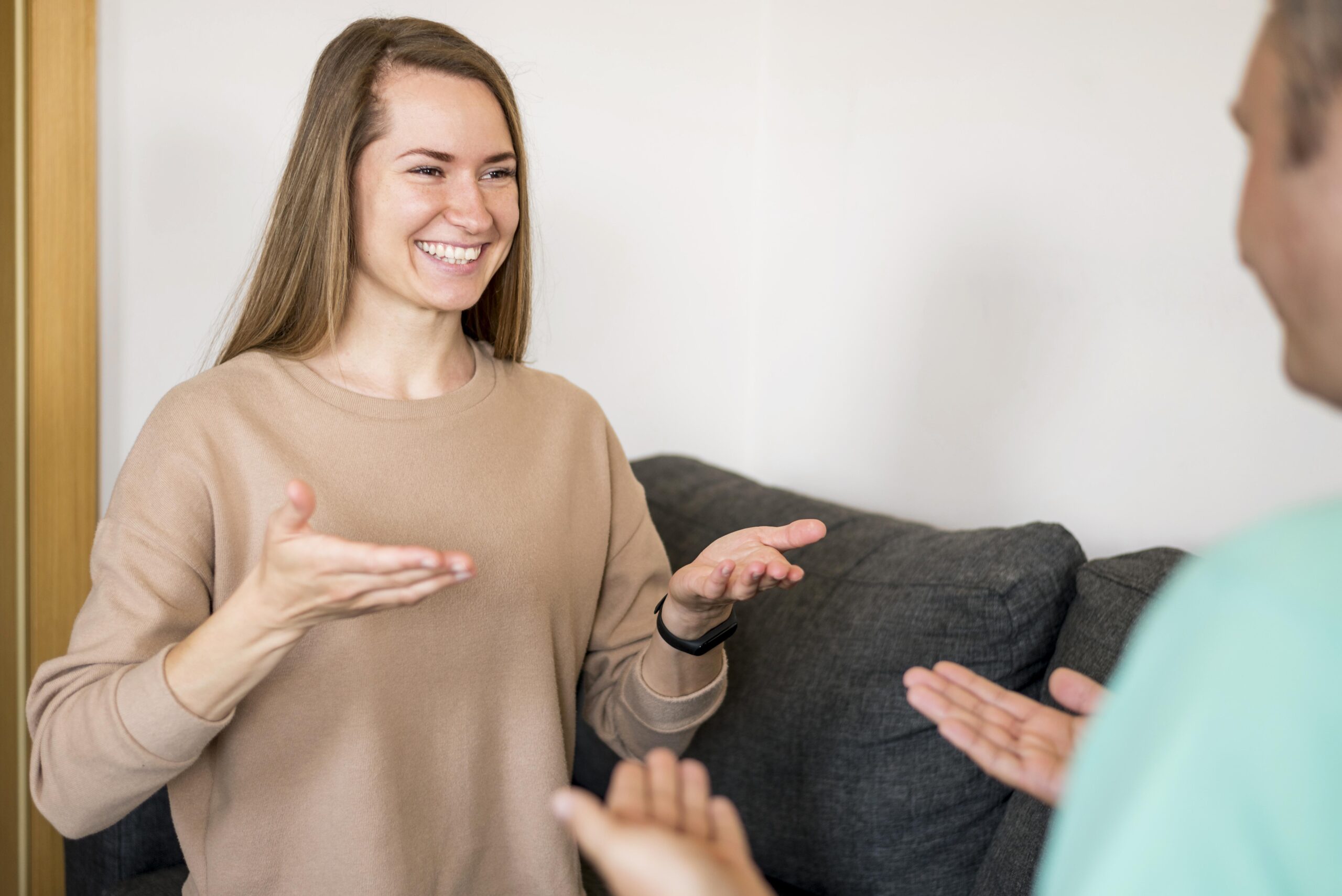Deaf Awareness Month is more than a celebration of Deaf culture and history; it’s also a chance to shine a light on the unique mental health needs of Deaf and hard of hearing (DHH) people.
Too often, d/Deaf and Hard of Hearing individuals face unnecessary barriers to mental health care: communication gaps, social isolation, and professionals who don’t understand their lived experience. These barriers don’t just make life harder, they can take a toll on your mental health.
But there is hope. With the right tools and providers who can provide truly accessible care, d/Deaf and Hard of Hearing people can move from isolation to connection.
Why Deaf Awareness Month and Mental Health Belong Together
- Higher rates of anxiety & depression: Research shows that d/Deaf and Hard of Hearing people are at increased risk of depression and anxiety, often linked to communication barriers and social exclusion (Kvam et al., 2007).
- Barriers to therapy: Many mental health providers lack Deaf awareness or access to interpreters, making therapy less effective or unavailable.
- Resilience within the Deaf community: At the same time, Deaf culture is rich in resilience, community connection, and shared identity. Strengthening these protective factors can improve mental health outcomes.
This month is a reminder that mental health is not separate from access — it depends on it.
Common Mental Health Challenges for d/Deaf & Hard of Hearing People
- Communication fatigue: Constantly navigating lipreading, captioning, or interpreting can be exhausting.
- Isolation: Being left out of conversations or social events increases loneliness, a risk factor for depression.
- Trauma & stigma: Experiences of bullying, discrimination, or medical trauma can leave lasting emotional scars.
- Delayed intervention: Misdiagnoses or late access to mental health services can worsen symptoms.
Practical Mental Health Tips for d/Deaf and Hard of Hearing Individuals
These strategies, grounded in evidence-based psychology, can help improve emotional wellbeing:
- Build your circle of connection
- Join Deaf-led peer support groups or community events.
- Stay connected through online spaces designed for DHH people.
Why it helps: Social connection lowers depression risk and builds resilience (Holt-Lunstad et al., 2010).
- Use visual & written coping tools
- Try grounding techniques that use sight and touch (naming colors in the room, holding a textured object).
- Keep a written or visual safety plan for moments of distress.
Why it helps: Non-verbal strategies work well when emotional overwhelm makes language harder to access.
- Seek culturally competent care
- Ask providers if they work with interpreters or if they are familiar with Deaf culture.
- Explore therapy options with Deaf or signing clinicians when available.
Why it helps: Therapeutic alliance, which is the trust between client and therapist, is one of the strongest predictors of positive outcomes (Hofmann et al., 2012).
- Protect your mental energy
- Take breaks from communication-heavy settings.
- Practice self-compassion when you feel tired
Why it helps: Recognizing communication fatigue prevents burnout and validates your lived experience.
Tips for Caregivers, Families, and Professionals
If you support someone who is d/Deaf or Hard of Hearing, you play a key role in reducing their mental health risks. Here’s how:
- Ask about preferences: Always ask, “How do you prefer to communicate?” and honor the answer.
- Provide interpreters: Never rely on family members or friends for interpretation. Use certified interpreters for accuracy and confidentiality.
- Create inclusive spaces: Caption videos, use written summaries, and ensure group settings are accessible.
- Learn basic Deaf awareness: Even small efforts (like knowing a few signs or avoiding talking over interpreters) build trust.
- Encourage connection: Support access to Deaf community events and peer-led groups.
From isolation to connection: the path forward
Deaf Awareness Month reminds us that true inclusion means more than celebrating culture, it means addressing systemic barriers to mental health care. When Deaf and hard of hearing individuals have access to therapy, peer support, and culturally competent care, isolation can give way to connection, and pain can make room for healing.
If you are Deaf, hard of hearing, or a caregiver, remember: mental health is not something you have to struggle through alone. Connection, access, and community are powerful tools in your journey toward wellbeing.
If you or someone you love is Deaf or hard of hearing and struggling with mental health, know that accessible care and community support are available. Reach out to a therapist trained in Deaf awareness, connect with your local Deaf organization, and share this post to raise awareness this Deaf Awareness Month.
Reviewed and edited by Nichole Vandenbos MSW, RSW at Finding Solutions Together.



Recent Comments